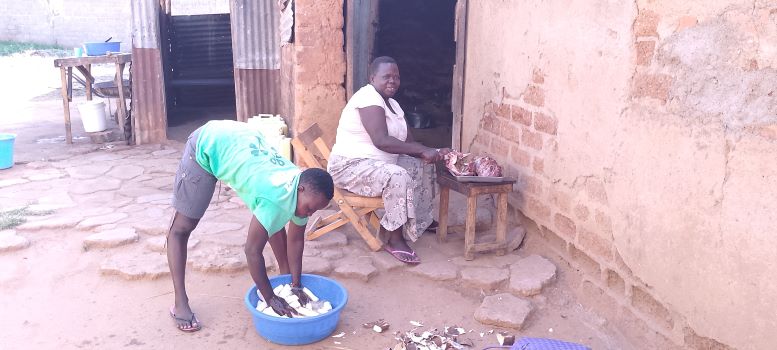KOTIDO, July 7, 2025 — The Parish Development Model [PDM] programme in Kotido district is facing major setbacks, with several beneficiaries struggling to sustain their businesses despite receiving government funding intended to lift households out of poverty.
More than Shs 400 million has been disbursed in Kotido under the PDM, which aims to provide Shs 1 million to each qualifying beneficiary to invest in income-generating enterprises such as coffee, dairy, piggery, poultry keeping, crop, fruits, and vegetable farming and general trade in the agricultural value chains. However, reports of mismanagement, diversion of funds, and lack of financial or management skills among recipients have raised concerns over the programme’s impact.
A spot check by this reporter revealed that many PDM beneficiaries in Kotido district, despite receiving funds over a year ago, are still grappling with financial instability and stagnant or collapsed businesses.
Promises unfulfilled
Loyce Fatuma, a 39-year-old restaurant owner, received Shs 800,000 nearly two years ago and invested in a small food vending business. Today, she finds herself overwhelmed by rising rent costs, low customer turnout, and a shortage of staff.
“I thought the PDM funds would be a game-changer, but it’s been a struggle,” Fatuma said. “The rent is too high, and the sales are low. I am barely making ends meet.” Fatuma’s experience is echoed by many others in the district doing the same business.
Funds diverted to basic needs
Andrew Mwalu, a local butcher, received Shs 1 million under the PDM and invested Shs 700,000 in his beef business. However, he redirected the remaining Shs 300,000 to pay his children’s school fees, a move that ultimately hindered his business growth, although it also went against the programme guidelines which prohibit spending the money on items like school fees.
“I used part of the funds for school fees, which was necessary,” Mwalu explained. “But now I am struggling to expand. I need more capital to access better markets and improve my products.”
Mwalu has called on the government to consider offering additional support to beneficiaries who have genuinely attempted to put the funds to productive use.
Lack of skills and support
For Margret Adiro, a bar and hotel operator, the PDM funds went into purchasing utensils and chairs for her restaurant. However, with low customer turnout during off-peak periods, she finds it difficult to manage her finances.
“I’m not sure I am using the funds efficiently,” Adiro admitted. “If the government could provide financial management training, it would really help.”
Other recipients such as Rafaela Akello and Evaline Koko have also faced major setbacks.
Akello used her Shs 1 million grant to purchase brewing materials, cover ground rent, and buy millet and sorghum. However, her business collapsed under the weight of customer debts, levies, and the rising cost of living.
“I had a plan, but customers failed to pay, and debts piled up,” she said. “With more support, I would try again.”
Koko, on the other hand, eventually shut down her struggling business after securing a teaching job. “I just wasn’t earning enough. I had to let it go,” she said.
Officials point to misuse and mindset challenges
Parish chiefs in the district, however, place part of the blame on the beneficiaries themselves. One chief, who preferred to remain anonymous, pointed to irresponsible behaviour and misuse of the received funds. “Some PDM beneficiaries went back to drinking and reckless spending after receiving the money. They have returned to square one,” he said.
Another parish chief noted that while some beneficiaries did start businesses, many lacked the skills to run them effectively. “They need training and mentorship. Without it, the businesses are not sustainable,” he added.
A Need for rethinking the approach
The challenges faced in Kotido highlight the need for enhanced financial literacy, monitoring, and support within the PDM programme. Many agree that funds alone are not enough. Proper guidance and capacity building are essential for long-term success.
If these issues are not addressed, a programme meant to fight poverty risks becoming yet another missed opportunity.
https://thecooperator.news/kotido-pdm-farmers-struggle-as-drought-persists-despite-recent-showers/
Buy your copy of thecooperator magazine from one of our country-wide vending points or an e-copy on emag.thecooperator.news
